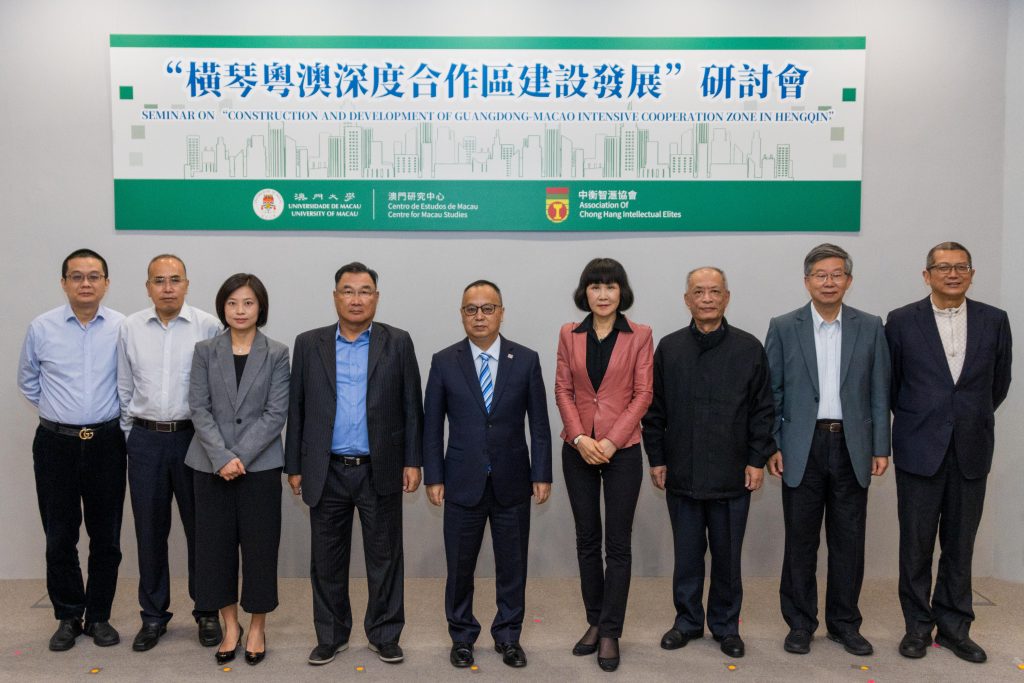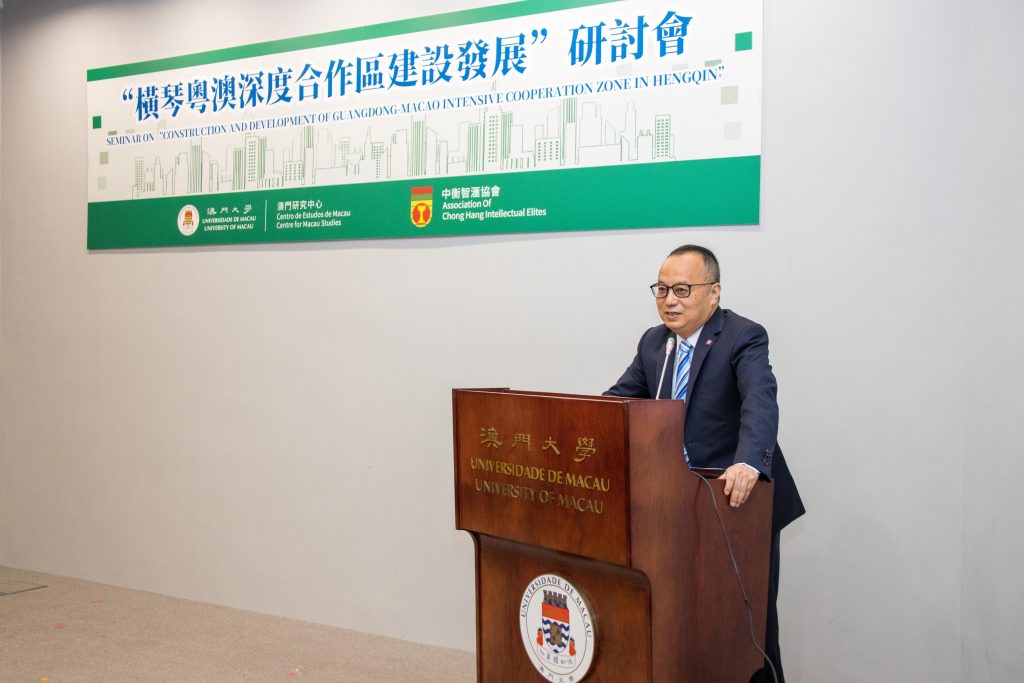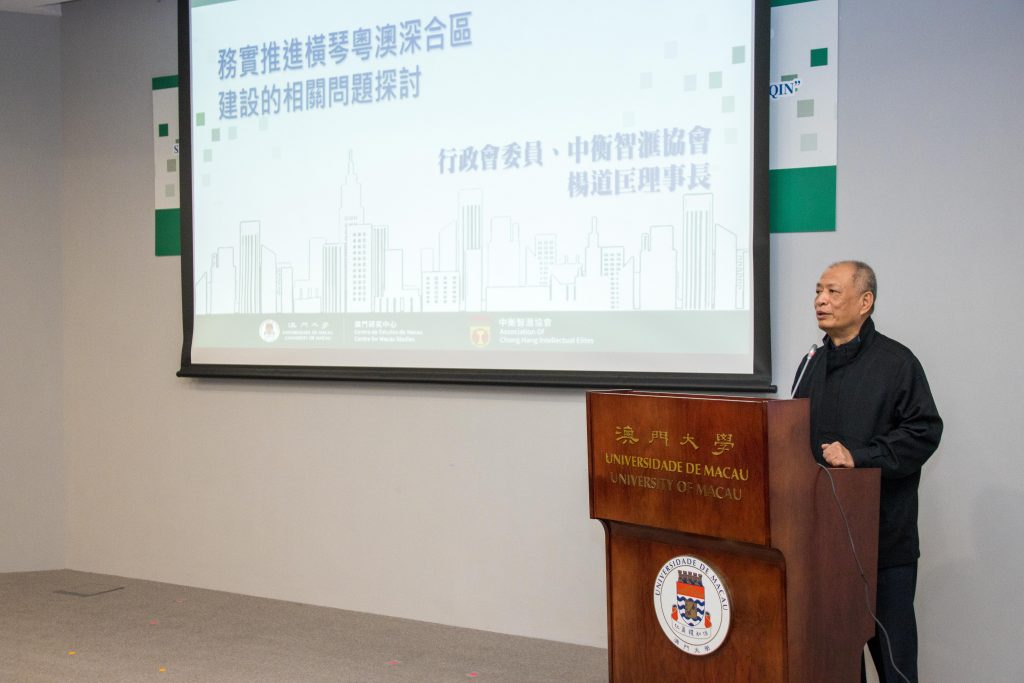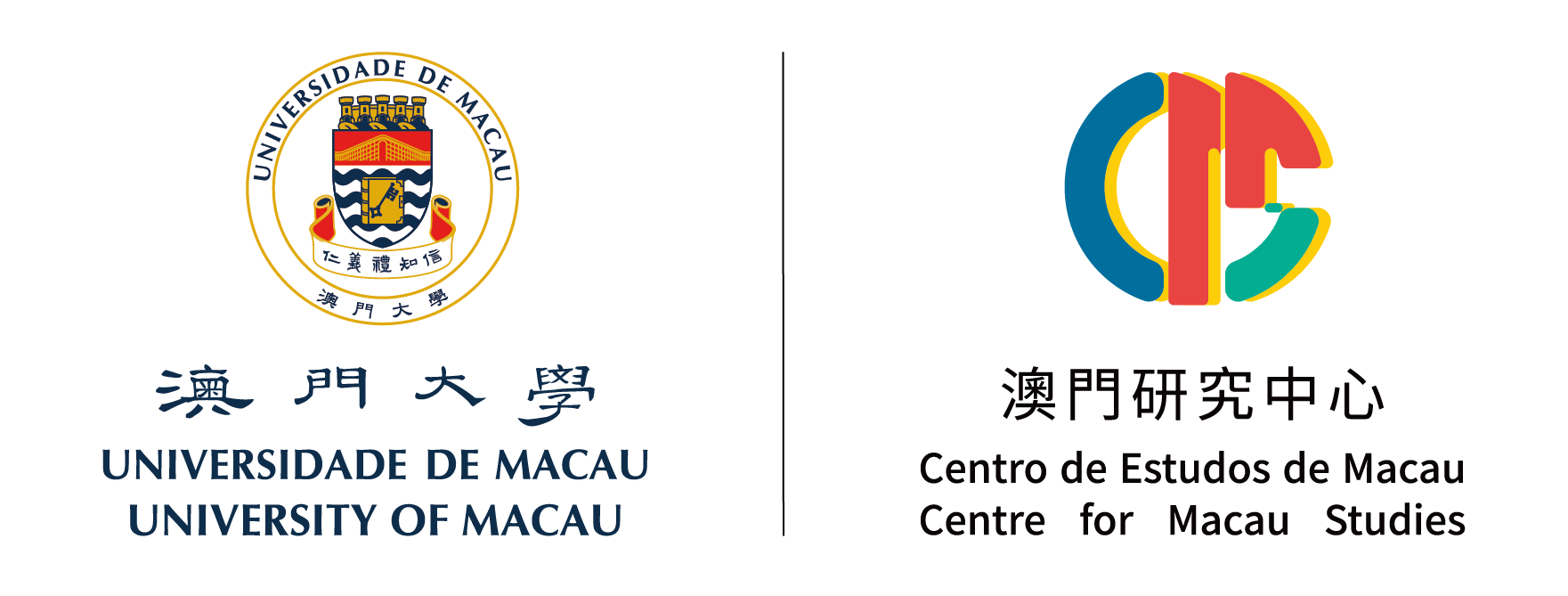The University of Macau (UM) Centre for Macau Studies (CMS) today (14 November) held a seminar titled ‘Construction and Development of the Guangdong-Macao In-Depth Cooperation Zone’. Experts and scholars attended the seminar to discuss the construction and development of the Guangdong-Macao In-Depth Cooperation Zone (Cooperation Zone) in Hengqin from various perspectives, including system establishment, policy planning, talent development, and public administration.
According to UM Rector Yonghua Song, as early as 2009, the central government decided to let Guangdong province, Zhuhai, and Macao jointly develop Hengqin. As the only university on Hengqin Island, UM has the responsibility of nurturing more international talent, producing more results in industry-academia collaboration, and playing a more active role in promoting the development of the Cooperation Zone. He added that the Cooperation Zone provides a mechanism for discussion, collaborative construction, management, and sharing. How to effectively implement the plan for the construction of the Cooperation Zone is of great concern to all sectors of society. The seminar aimed to collect suggestions on how to develop new industries in the Cooperation Zone to promote the economic diversification of Macao, how to establish a new platform for technological innovation to support the development of the Greater Bay Area, and how to create new career opportunities for young people in order to provide a fresh impetus to the long-term development of Macao.
Ieong Tou Hong, member of the Executive Council of the Macao SAR and director general of the Association of Chong Hang Intellectual Elites, pointed out three key issues related to the development of the Cooperation Zone, namely (1) preparing and improving the Overall Development Plan of Hengqin and the Master Plan of the Development of the Guangdong-Macao In-Depth Cooperation Zone; (2) initiating collaboration with Hengqin on tourism; and (3) borrowing Singapore’s experience and setting up investment companies to attract investment for Hengqin. In addition, he suggested formulating an action plan and setting relevant indicators to guide the development of the Cooperation Zone.
According to Richard Hu Weixing, dean of the Faculty of Social Sciences (FSS), in developing the Cooperation Zone, it is important to attract, retain, and nurture talent, attract more investment, and create a series of international policies and systems to facilitate the circulation of talent. Moreover, Prof Hu stressed the need to maintain close relationships between the Cooperation Zone and other cities in the Greater Bay Area such as Qianhai and Nansha, as well as to comply with the international trade agreements signed between China and other countries.
Regarding diversity and co-governance in the Cooperation Zone, Edmund Sheng Li, associate dean (academic affairs) of the FSS, suggested that a sense of community could be fostered through cooperation between the government and the public, and that Macao’s experience in community service and management of social organisations could be considered in developing the Cooperation Zone. According to Lok Wai Kin, professor of the Faculty of Law, the different expectations of Guangdong and Macao should be understood, and the challenges in the management systems in Macao and Hengqin should be addressed, especially those concerning the flow of talent, financial capital, and goods. Prof Lok added that innovation should be carried out within the framework of the constitution and the Basic Law of the Macao SAR, as well as the ‘One country, Two Systems’ policy, and the integration of civil, commercial, territorial and judicial laws should be promoted.
Other scholars attending the seminar include Zhu Hong, deputy director of the Economic Affairs Department of the Liaison Office of the Central People’s Government in Macao SAR; Yu Youkang, deputy director of the Communist Party of China Zhuhai Municipal Committee Policy Research Office; Sun Enguang, president of the Association of Chong Hang Intellectual Elites; Lao Pun Lap, president of the Macau Economic Association; and Angel Tang On Kei, associate director (administration) of the CMS.

Group Photo

Song Yonghua, UM Rector

Ieong Tou Hong, member of the Executive Council of the Macao SAR and director general of the Association of Chong Hang Intellectual Elites

